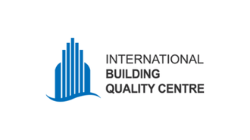To be successful, good practice building regulatory systems highlighted by the IBQC, must not only assure
public safety, but must also support two other goals: regulatory efficiency and innovation. Regulatory regimes
that are not efficient will encourage industry practitioners with limited budgets and timeframes, to circumvent
these systems. New and innovative building technologies can sometimes provide better safety, performance
and lower costs. Regulatory systems that do not accommodate legitimate building innovations become irrelevant. Therefore, good practice regulatory systems must not only provide a very high level of public safety but
must also be efficient and facilitate high quality design, system and material innovations fully compliant with
safety standards. Good practice building regulatory regimes, therefore, must be a win-win-win proposition
relative to safety, efficiency and innovation.
Those seeking to implement the IBQC Good Practice Principles for Building Regulation set out below will
need to have regard to their own circumstances, including the capability and capacity of:
- their country or jurisdiction to enact the required legislation and establish the necessary institutional arrangements to properly support the implementation of all principles; and
- their building and construction industry participants to meet regulatory requirements and develop their
- professionalism.
In many cases a staged approach to implementation will be appropriate.








